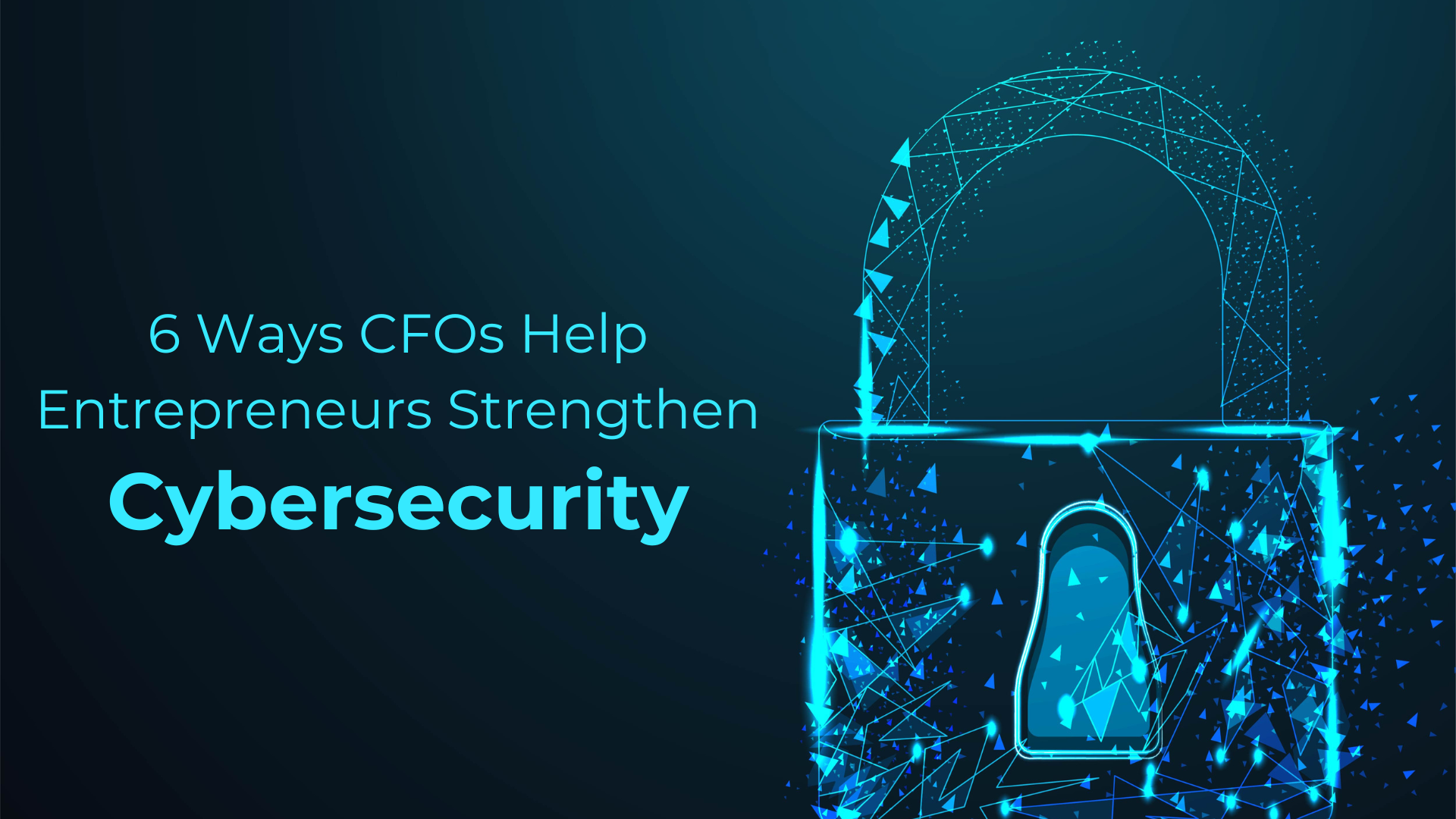
6 Ways CFOs Help Entrepreneurs Strengthen Cybersecurity
Content Team • February 24th, 2025
In today’s fast-paced digital world, cybersecurity is no longer just an IT concern. It’s also a business priority that if overlooked can cost organizations in a number of ways. Financial losses, reputational damage, regulatory penalties, and operational disruptions are just a few consequences of cyber threats.
According to a study by IBM, the average cost of a data breach to organizations worldwide was $4.45 million in 2023. Even a 2023 Verizon Data Breach Investigations report stated that nearly 95% of attacks are launched for financial gain, instead of any political, social, or personal reasons. This highlights the need for businesses to prioritize cybersecurity to protect their financial stability and long-term success.
Wondering how to manage your finances and overcome these consequences? This is where a Chief Financial Officer (CFO) plays a crucial role.
A CFO’s responsibilities are not just confined to managing finances. They are equally responsible for crafting cybersecurity strategies that align with business goals and risk management plans.
Let’s dig deep into the blog to understand the role of these financial officers and how they help entrepreneurs prevent security breaches.
Financial management experts work closely with chief information security officers (CISOs) to prioritize potential threats based on their financial risk. CISOs usually take the lead in proposing a budget for cybersecurity investments. But it’s the CFOs who are responsible for reviewing the budget and making recommendations.
CFOs have expertise in examining investments and ensuring that appropriate funds are allocated to protect the company’s assets. They help small businesses balance financial resources between security tools, staff training, and cyber insurance. This is how they prepare a business for potential threats without overspending.
If you take a deeper insight into cyber security, you will realize that financial risks and cyber risks go hand-in-hand. This is because cyber threats can lead to financial losses if not checked in advance. The role of a CFO is to identify these potential risks such as ransomware, data breaches, and fraud, and analyze their financial impact. They work with IT teams to implement preventive measures. These include penetration testing, third-party security evaluations, fraud detection systems, etc. All these together help mitigate risks, thereby minimizing financial losses and protecting business continuity.
The ultimate intention of cybercriminals is to target financial transactions. Hence, businesses must introduce strong financial security measures. CFOs play a fundamental role in establishing and enforcing financial controls to prevent fraud, unauthorized transactions, and data breaches.
Financial experts ensure that all transactions are made through secure payment gateways. While prioritizing secure payment processes, they enforce multi-factor authentication (MFA) and restrict access to sensitive financial data. Such measures are strong enough to prevent unauthorized transactions, insider threats, and phishing attacks.
Today, every small business or startup must comply with various cybersecurity and data protection regulations such as GDPR, CCPA, and PCI-DSS. It is required to safeguard customer information and financial data, otherwise, non-compliance may lead to hefty fines and legal issues.
A CFO has a good understanding of key cybersecurity regulations. They stay updated on data protection laws and guide businesses to align financial policies with cybersecurity best practices. Remember, ensuring regulatory compliance not only protects businesses from costly penalties but also strengthens customer trust and improves brand reputation.
Still wondering how to manage a company’s finances and protect it from severe financial consequences? CFOs are responsible for evaluating and purchasing cyber insurance policies, protecting the company from the financial fallout of cyber incidents.
Cyber insurance covers the costs related to data breaches, ransomware attacks, and business interruptions. A financial expert having expertise on these policies can help businesses claim and recover quickly from an attack without suffering a major setback.
Whenever there is a cyberattack, every business takes a quick strategic action to minimize financial damage. This is where a CFO plays a vital role. They prepare businesses to respond effectively by developing an incident response plan and a business continuity plan.
Incident response plans highlight immediate containment measures, steps to communicate with stakeholders, and how to recover financial assets. On the other hand, business continuity plans involve steps for backup and disaster recovery, alternative payment and transaction systems, and cybersecurity training. All these measures help businesses minimize downtime and reduce financial losses.
Being an entrepreneur, you can’t afford to ignore cybersecurity. Can you? Hence, partnering with CFO experts is the perfect way to protect your business assets. They integrate cybersecurity into financial planning and ensure that your venture remains secure, compliant, and financially stable.
So, what are you waiting for? Seek the guidance of our proactive financial experts and invest in a cybersecurity improvement program today.

Samy Basta brings you more than 20 years experience in tax, financial, and business consulting to his role as founder of Basta & Company. His focus is primarily strategic business planning, empowering clients to set priorities, focus energy and resources, and strengthen operations. In addition, Samy and his firm provide strategic counsel, and technical insight, on a wide range of needs, including tax saving strategies, tax return compliance, as well as choice of entity.